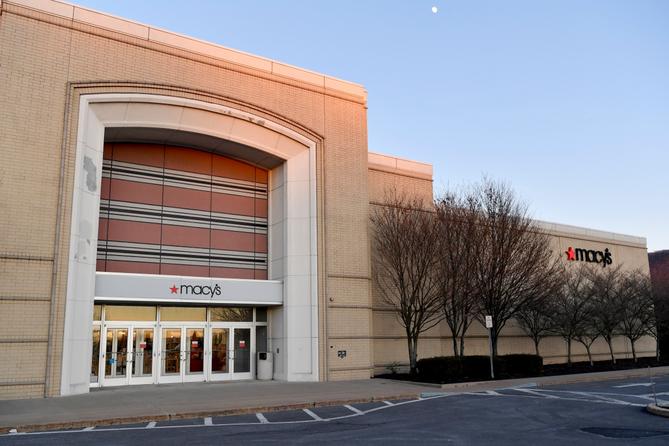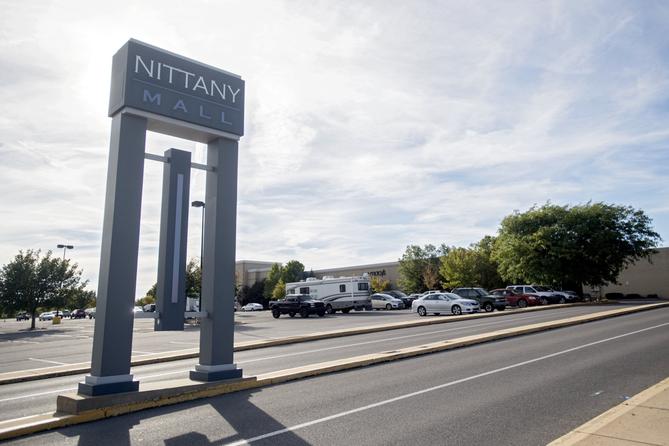This story was produced by the State College regional bureau of Spotlight PA, an independent, nonpartisan newsroom dedicated to investigative and public-service journalism for Pennsylvania. Sign up for our regional newsletter, Talk of the Town.
STATE COLLEGE — In January, despite months of documented public opposition, the Pennsylvania Gaming Control Board (PGCB) unanimously approved a casino slated to go in the Nittany Mall.
Andrew Shaffer, who runs the website SayNoCasino.org, was at the forefront of the anti-casino movement, collecting thousands of State College area residents’ signatures opposing the project. They believe the casino will be a drain on the economy and adversely affect Penn State students, a population especially susceptible to gambling addiction.
The “mini-casino,” which could have anywhere from 300 to 750 slot machines and up to 40 table games according to state rules, has drawn criticism from residents who feel they were not included in the approval process.
So why couldn’t the opposition movement halt the project? While Shaffer speculates part of the reason behind the PGCB’s approval was “pressure” from the gambling industry, another explanation lies in the regulatory procedure behind the casino’s development. Because of a 2017 state law, College Township had to OK the possibility of a casino before a license was even available in Centre County.
The 2017 legislation, called Act 42, created 10 mini-casino licenses to be distributed across Pennsylvania and included an opt-out period for municipalities, which opened in November of that year and closed about 60 days later.
At a council meeting on Dec. 7, 2017, College Township chose not to opt out and remained a potential location for a casino — one of 14 Centre County municipalities to do so. At the time, council members doubted that the Nittany Mall, the only place one could go due to the township’s restrictions on gambling, would be a sought-after locale, with one council member calling its chances “pretty slim.”

College Township Manager Adam Brumbaugh told Spotlight PA that the municipality’s gaming policies, combined with a desire to address the “deteriorating economic situation” of the Nittany Mall, ultimately drove the council’s decision.
This short opt-out window, combined with the jumbled decision-making order of operations, limited the public’s chances to weigh in. Brumbaugh said the township’s December 2017 public meeting, when the opt-out decision was an agenda item, wasn’t attended by any casino opponents.
“At that time, there were no licenses [for Centre County] that were available,” Brumbaugh said. “It never came up as a discussion point from the public.”
The language of the 2017 law also allows municipalities to decide at any time that they want to opt in, or become a potential casino host, but once they do, opting out is prohibited. Shaffer said this aspect of the 2017 legislation is “extremely biased in favor of casino developers.” College Township, based on its solicitor’s opinion, believes it could have opted out until July 2, 2019, because of an amendment to state law, but it missed that chance, too.
Blaine Lucas, a Pittsburgh-based attorney who specializes in zoning law, said the main difference between casino development and other land development is that the former is “largely directed by the state legislature” rather than municipalities or private companies.
“It’s hard to compare [gaming legislation] to other uses, because there is a pretty unusual legislative regime that exists there,” Lucas said. “It’s certainly not typical.”
For more than two years after College Township did not opt out, the gaming industry made no moves in the area. It wasn’t until September 2020 that Ira Lubert, a former member of Penn State’s Board of Trustees, won a PGCB auction for a mini-casino license and chose to build in the former Macy’s of the Nittany Mall under a company called SC Gaming.
Lubert won the auction with a bid of $10,000,101, and he submitted his license application on March 2, 2021. Lubert owns a 3% stake in Pittsburgh’s Rivers Casino, and he opened the Valley Forge Casino Resort outside Philadelphia in 2012, later selling it for $280 million.
Shaffer was first made aware of the casino in August 2021 when the PGCB hosted its first public hearing on the project. He said scheduling a hearing at that time of year hindered public participation.
“That date … was chosen at a time when as many people as possible would be out of town,” Shaffer said.
“I’ve heard from hundreds of people that they didn’t know a casino was coming, even after a fight against it was well underway.”
The PGCB’s public input period began July 21, 2021 and remained open much longer than the typical 30-day window. But because of this extended period, the PGCB did not allow comments at their most recent (and final) hearing in January of this year, when the license was granted.
As a result, the public record includes comments from only two people opposing the casino, and the thousands of signatures SayNoCasino gathered weren’t mentioned.
Shaffer and other community members requested that the College Township Council submit a letter to the PGCB summarizing public disapproval, but the township refused.
“We received an abundance of correspondence from community folk in opposition,” Brumbaugh said. “After consultation with the solicitor, we decided not to forward a letter of concern because the solicitor advised that that could be interpreted as a type of interference, which could create a liability for the township in the event that a license was not afforded to SC Gaming.”
Now, the only things potentially standing between SC Gaming and its Nittany Mall casino are two parallel court cases against the PGCB filed by Cordish Companies, which owns the gambling business Stadium Casino and lost the license bid in 2020.
The first, filed in Commonwealth Court, argues that SC Gaming’s mini-casino license should be thrown out because of its partnership with Bally’s Corporation, which signed onto the project in January of 2021 — months after Lubert had already won the auction. Cordish claims Lubert financed the bid with the help of Bally’s, which Cordish contends is forbidden by the 2017 law. The company also argues the PGCB shouldn’t have considered SC Gaming’s application at all.
The second case is an appeal of the PGCB’s license itself, which has gone straight to the Pennsylvania Supreme Court.
On April 5, a Commonwealth Court judge denied a stay request from SC Gaming that would have prevented the case from moving forward until a decision by the state Supreme Court had been made. The judge said that the lower court case requires a record of the facts before the state Supreme Court can consider it.
If Cordish wins and Lubert’s license is revoked, Stadium will have the option to build a casino in a different city and might choose to do so in a more populated location, such as Philadelphia or Pittsburgh, where it already operates other casinos.
Until then, Shaffer said SayNoCasino plans to keep voicing its disapproval.
“I’m not enthusiastic about [Stadium] winning the license and building the casino elsewhere,” he said. “In my view, casinos are harmful to their host communities wherever they are.”
Lilly Riddle is a journalist in Penn State’s News Lab and an intern with Spotlight PA’s State College regional bureau.
SUPPORT THIS JOURNALISM and help us reinvigorate local news in north-central Pennsylvania at spotlightpa.org/statecollege. Spotlight PA is funded by foundations and readers like you who are committed to accountability and public-service journalism that gets results.
